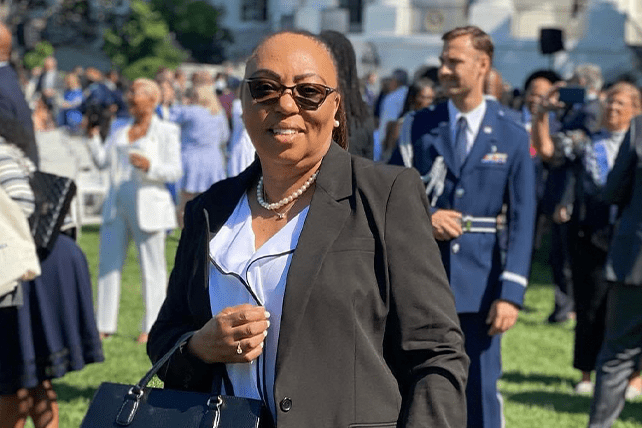Is that more than you expected?
I was not expecting anyone out of the state of Florida. My goal was strictly Florida only because I knew we were the ones impacted by our own legislation. (Clergy from) other states began to call, email Faith in Florida to say, “We’ve heard about it. How do we get access to your toolkit? How do we register? Because we want to be a part of this teaching that is going on in Florida.” They were concerned that this can easily happen in Michigan or Pennsylvania, Arizona, Virginia. These are some of the outside states that have called us to say we want to be a part.
There are some who have committed to teaching about Black history that are leading houses of worship in your state that are not predominantly Black.
Some of our churches that are led by white clergy leaders have also signed up to teach African American history. They realized they can’t teach it like the Black church, but they can teach it in a way of accountability.
What does that say to you about that sense of interest — that it’s gone beyond Florida, and that it’s gone beyond Black churches, whether in your state or elsewhere?
When I engage in conversations with my white brothers and sisters and Muslim brothers, they just realize this is morally wrong. And if there’s one thing we have in common, it’s morals and values. And this is morally wrong for this history. African American history is still a part of American history, and it’s being threatened in a way of teaching a diluted version of it. Black people have never benefited from being slaves. Who benefits from being raped or being beaten? That’s not a benefit.
What is next in your plans related to teaching Black history in Florida or beyond it?
We’re now focusing on how do we convene all of these churches in the state of Florida, and out of the state of Florida, to have a more strategic conversation on where do we go from here. And so we’re focusing on bringing all of those that registered together early next year and just evaluate how far we’ve come, where we are and is there anything else we can do in a collective way to strengthen Black people?
Ahead of the 2020 election, your organization’s work on voter mobilization expanded beyond its traditional ties with Black churches — “Souls to the Polls”— including to synagogues and mosques. Are you finding a similar pattern with your organization’s push to educate people about Black history?
Yes, it has become a similar pattern. We have united as one. We have taken the lemons we were given and we’re turning it into lemonade. And we’re at a table of brotherly love where we realize, with all of these different faith traditions that we engage, we have more in common than what actually separates us. If we’re going to build a “beloved community” where everyone feels a sense of belonging, that means we need to talk to everyone.
This article originally appeared here.

